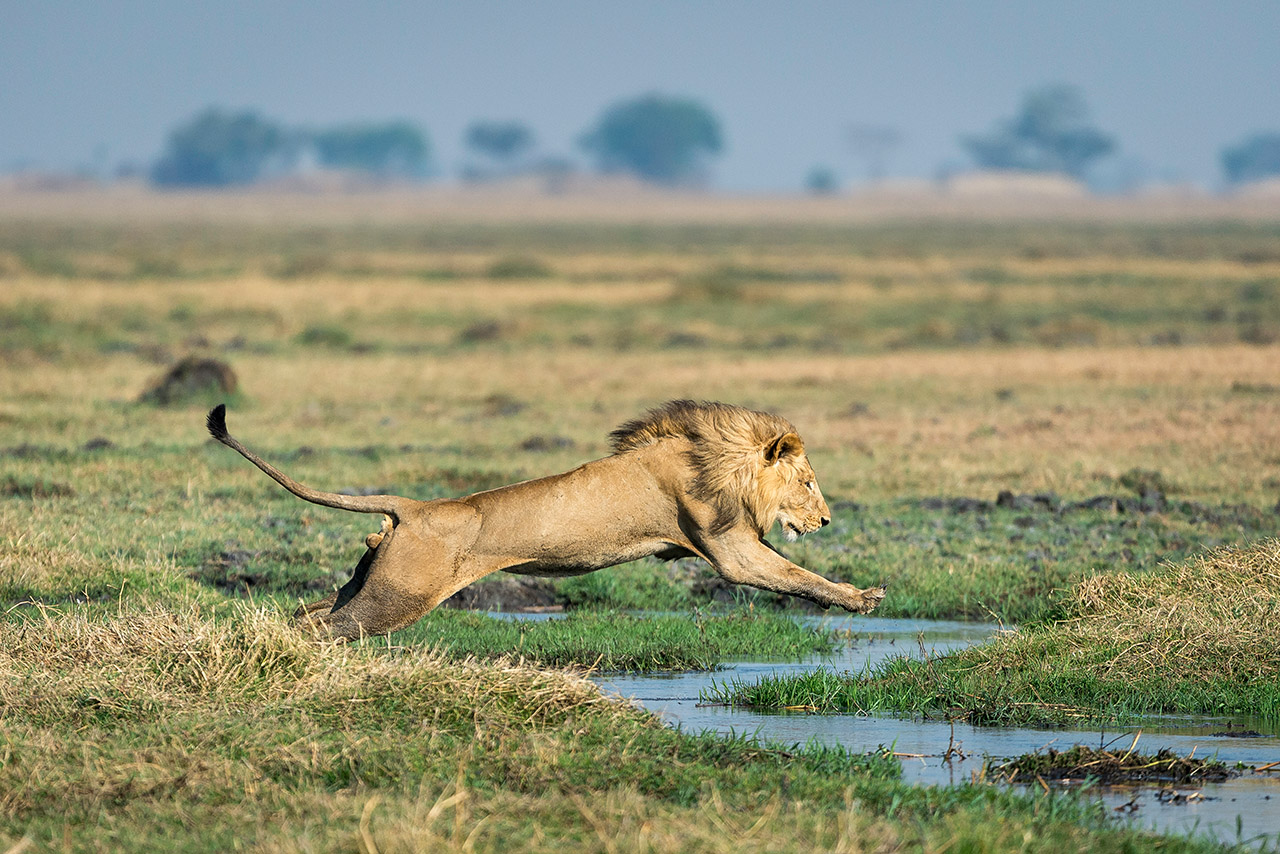
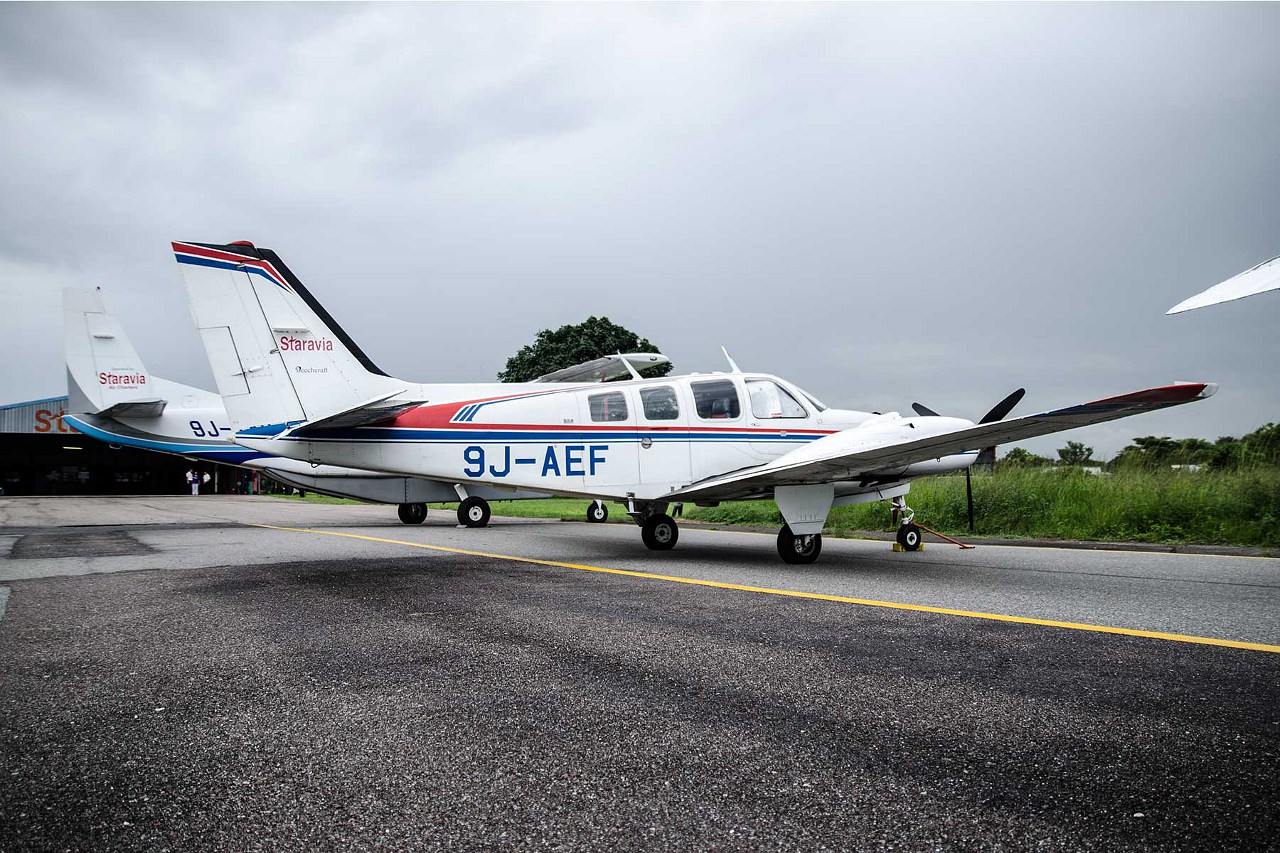

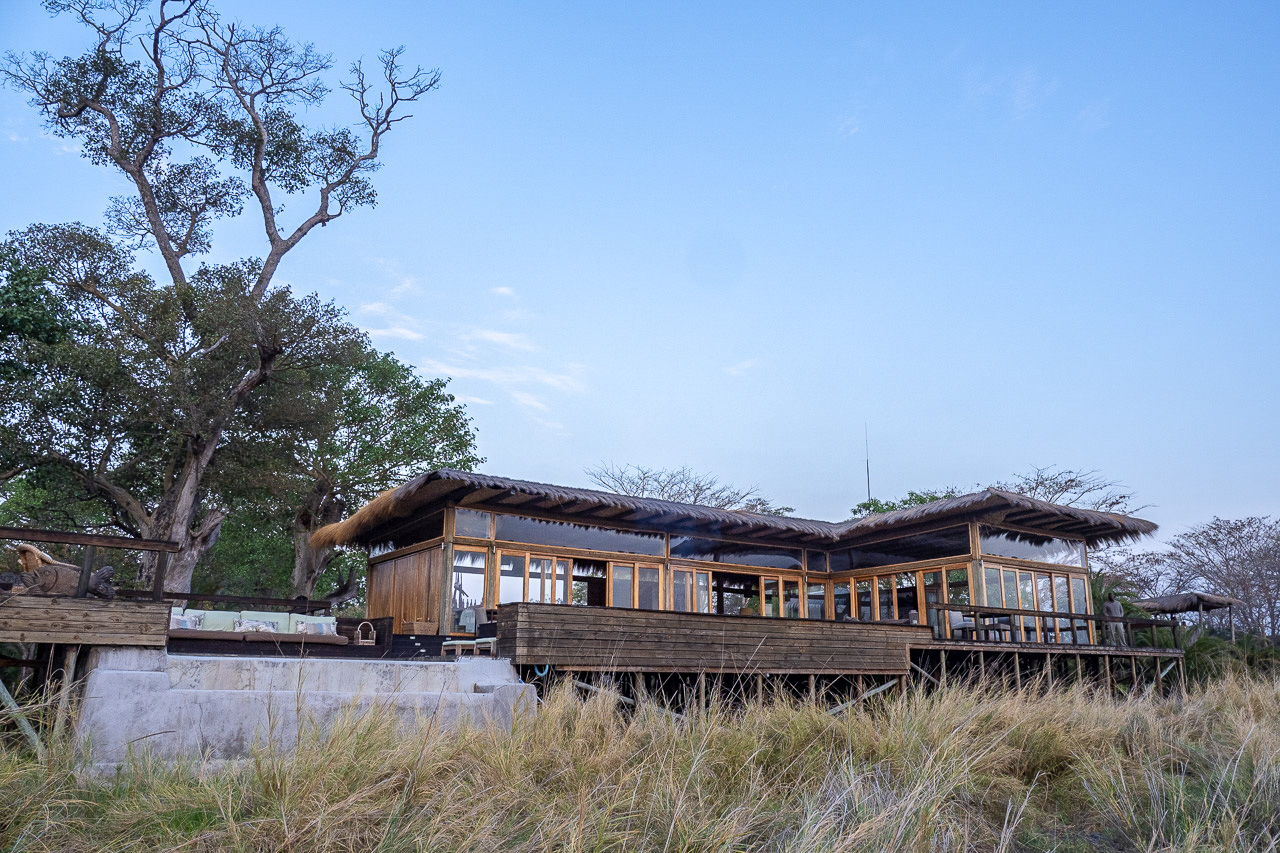
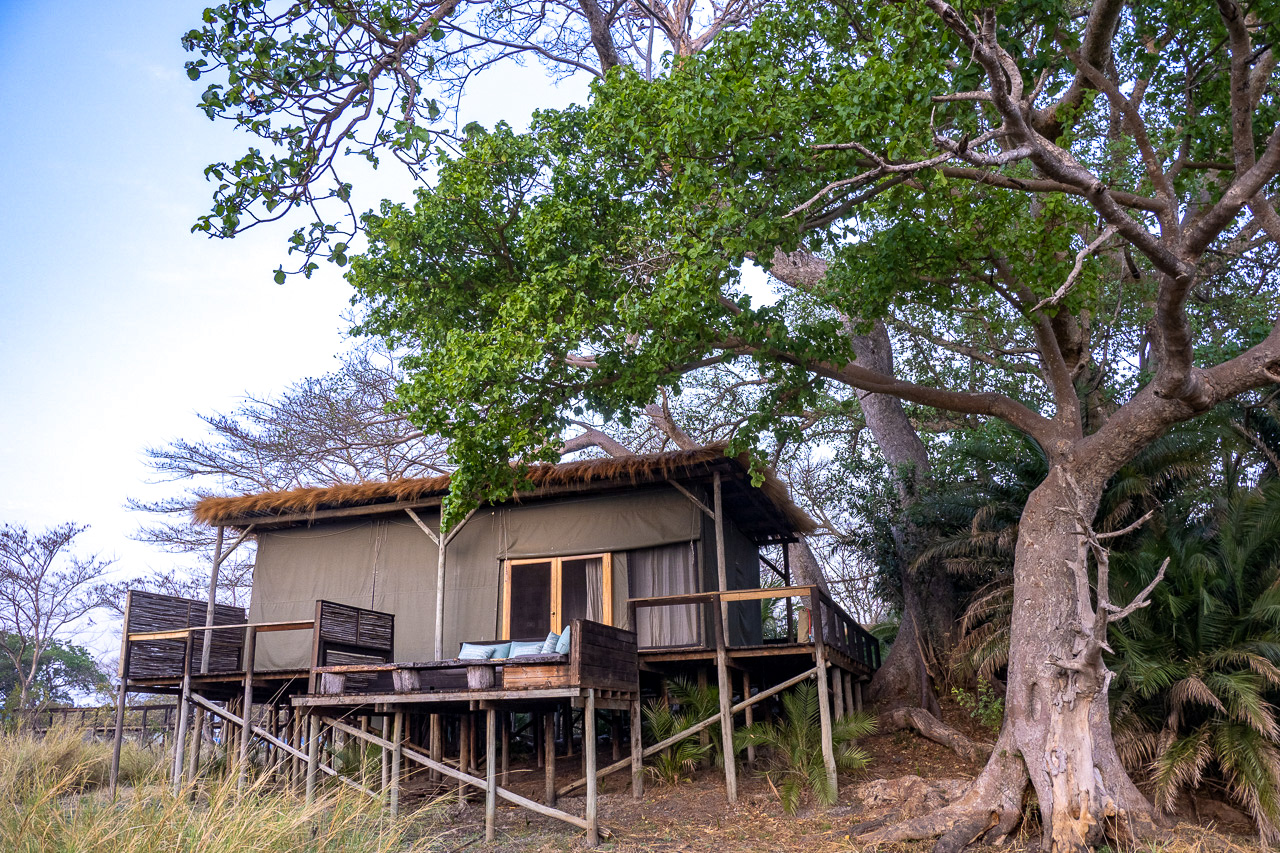
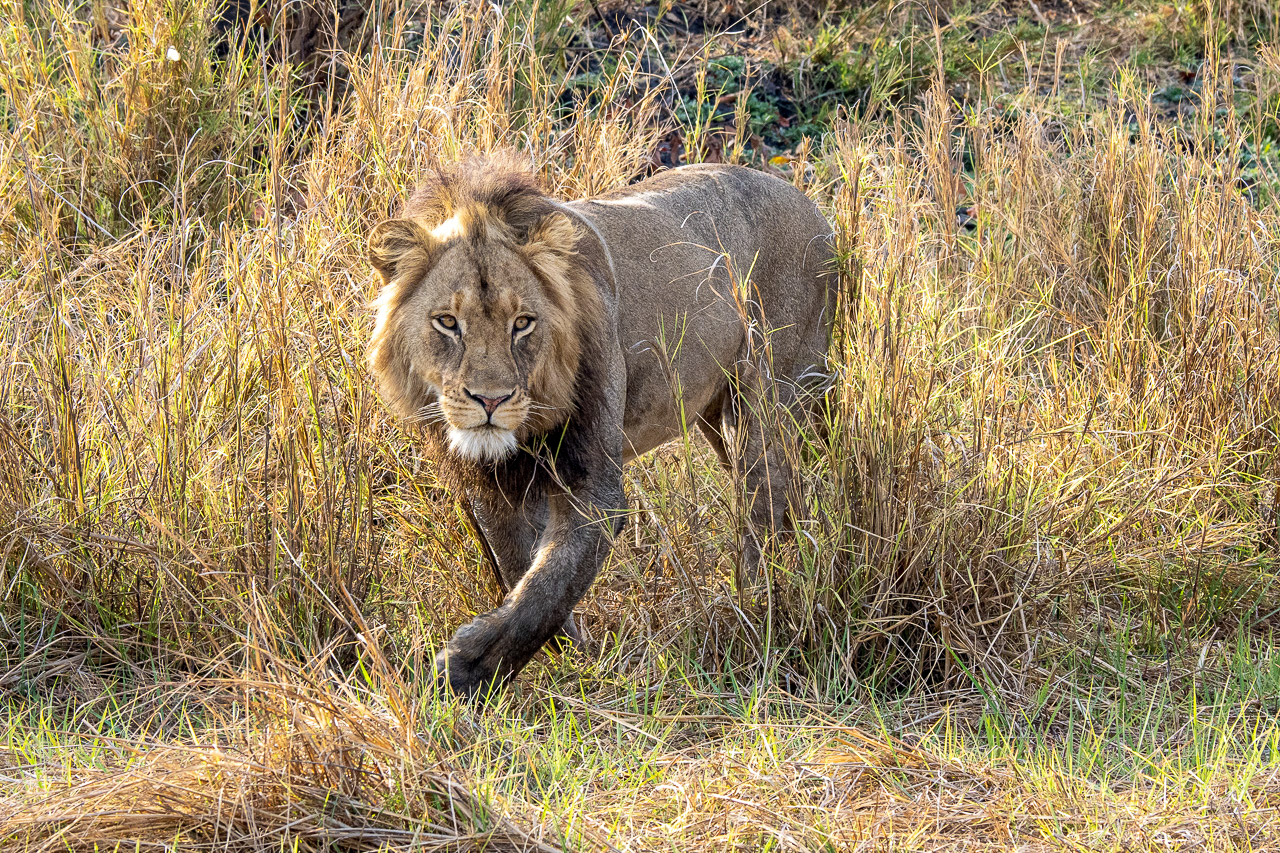
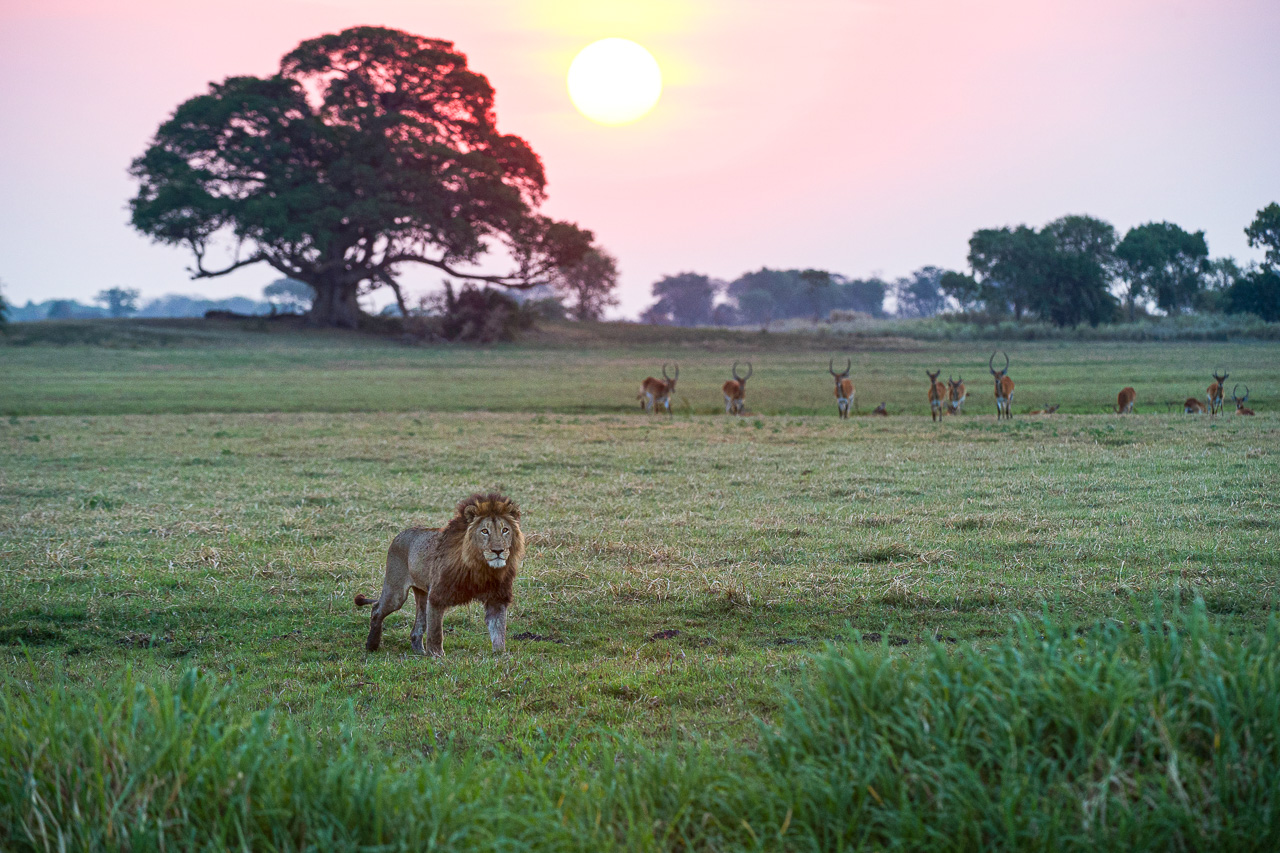
Accommodation
Shumba Camp (lion's camp) is shaped like a horseshoe, with the main building taking central position and three rooms connected by high wooden walkways on either side. The rooms sit on high platforms and come with a large double bed, desk, en-suite facilities, double washbasin and outdoor shower.
The main building features a large terrace with fire pit where breakfast is served. It is the perfect spot to enjoy a cup of coffee and watch the sun rise over the Busanga Plains. The indoor area houses a bar, lounge and dining area with large glass windows leading out onto the deck.
Puku and red lechwe tend to gather in front of the camp as well as hippo during the flood season. Guests can loll in the hanging chairs and simply take in the spectacular surroundings. Lions regularly visit the camp, keeping everyone on their toes. Shumba Camp is most certainly one of the most beautiful camps in Kafue. Located just 15 minutes away, Busanga Bush Camp is suitable for those looking for a less luxurious bush experience.
Kafue National Park covers an area of 22’400 km² which makes it one of the largest parks in Africa. The northern part of the park is home to the spectacular Busanga Plains, which flood during the wet season and gradually dry up again as October approaches. As the dry season progresses and the surrounding water holes dry up, more and more wildlife find their way onto the plains. Most camps open in May/June and close again in November when the rains arrive.
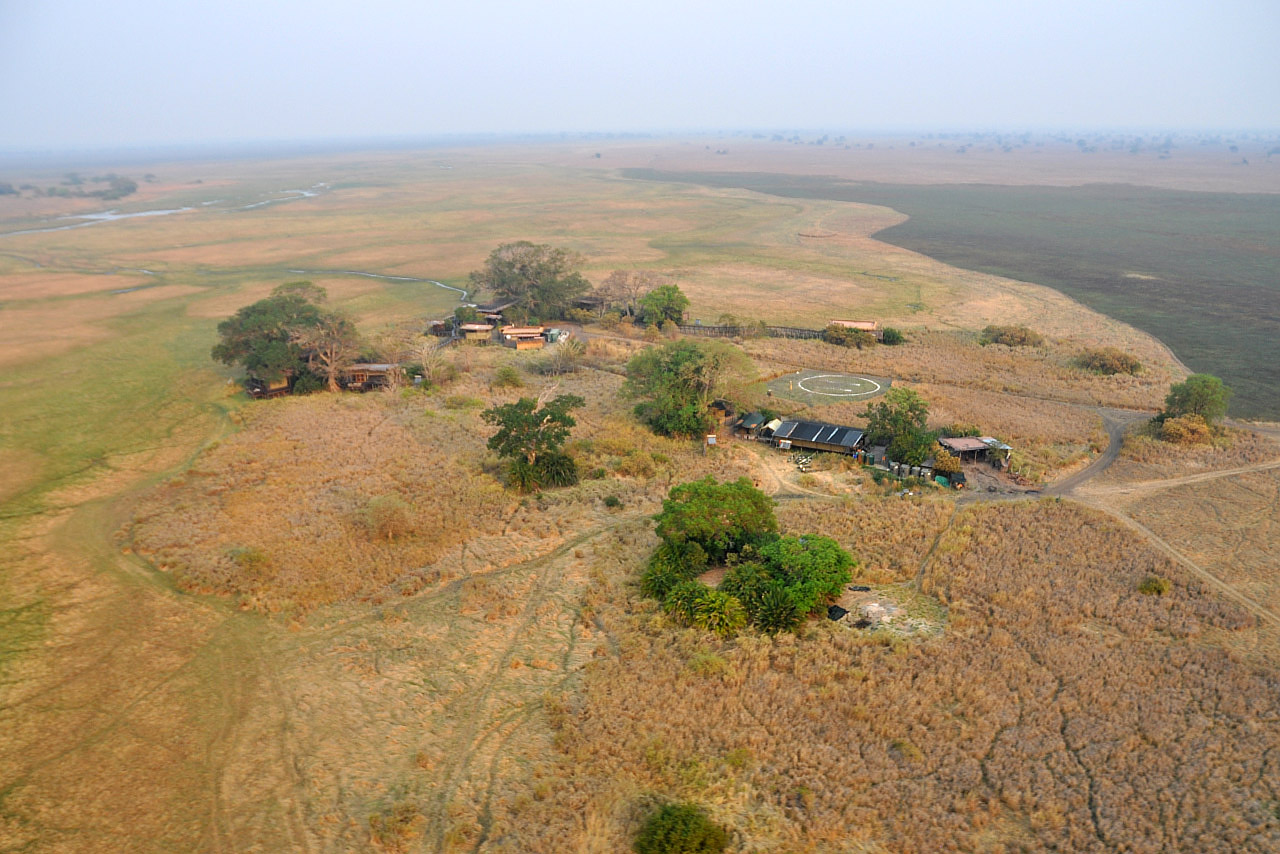
Kafue National Park sits at a height of 1350 m above sea level and covers 22’400 km². The three rivers Lufupa, Lunga and Kafue all carve their way through the park before being blocked by the Itezhi Tezhi Dam in its southern part.
The northern part of the park is home to the spectacular Busanga Plains, which flood during the wet season and gradually dry up again as October approaches. Flooding reaches its peak in March/April. Most camps open in May/June and close again in November when the rains arrive.
Busanga Plains supports a broad spectrum of wildlife, but not in large numbers. Nevertheless, it is definitely worth a visit, as there are not many places where you get to see wattled crane, crowned crane, sitatunga, puku, red lechwe, wildebeest, sable and roan antelope, leopard and lion all in one day.
The park also supports cheetah and wild dog. Elephant wander across the plains, but again not in large numbers. The Busanga Plains become a paradise for bird lovers from April to June: 491 species have been spotted here to date.
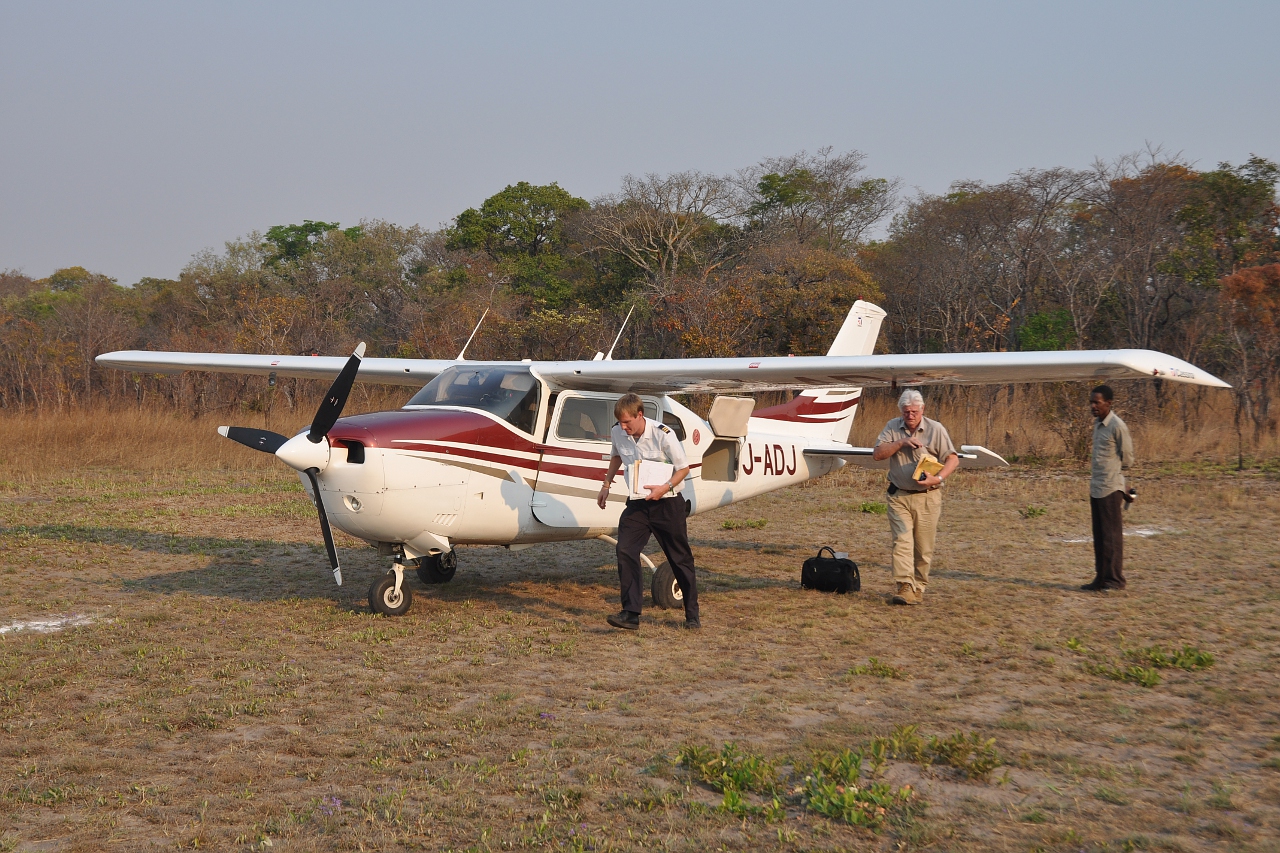
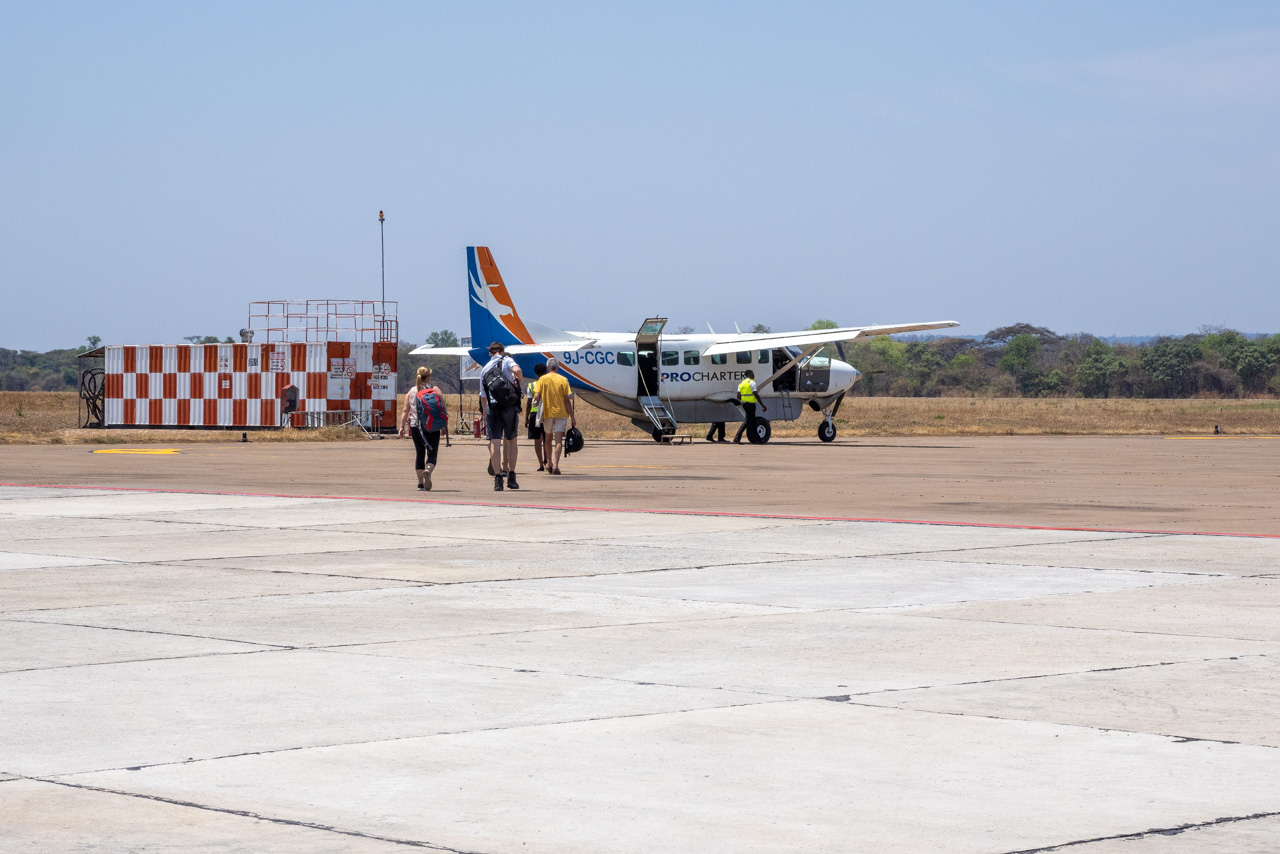

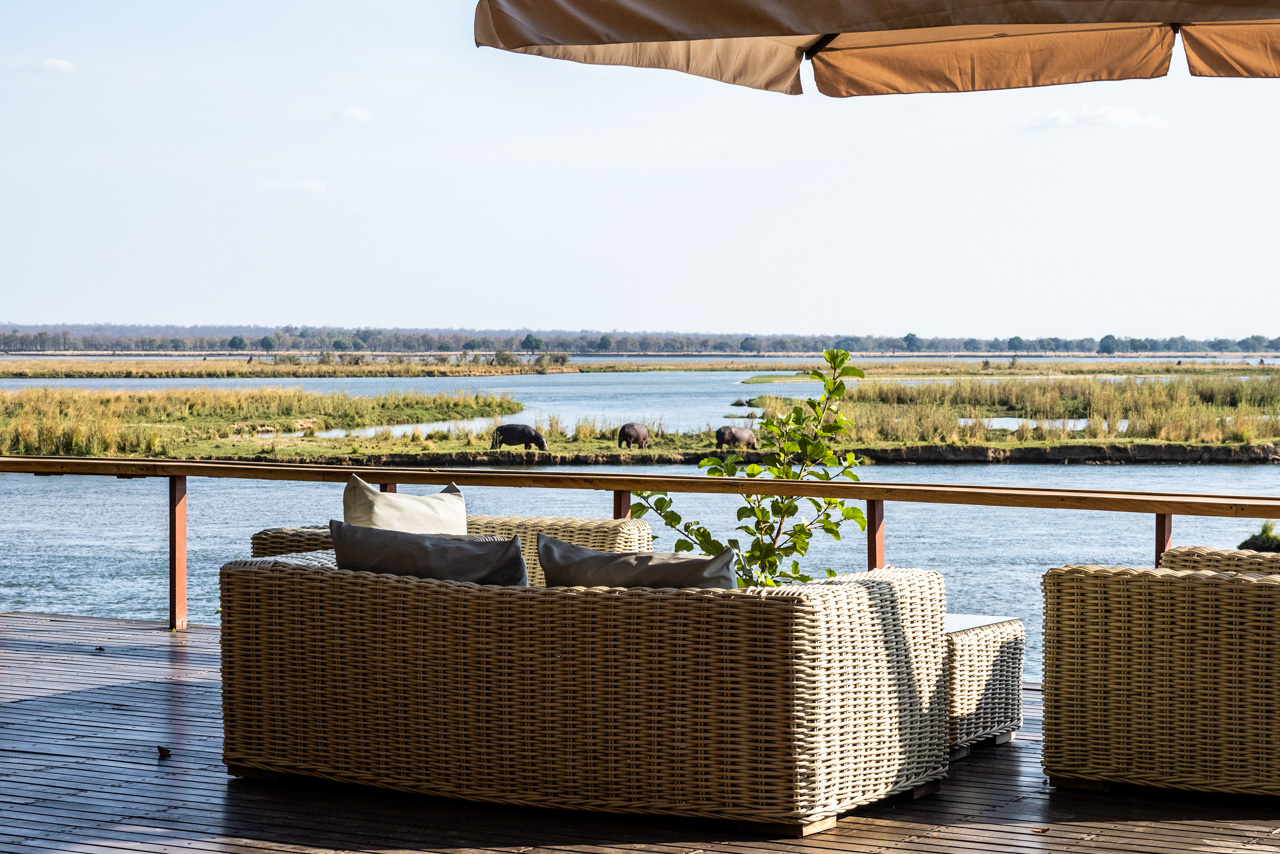

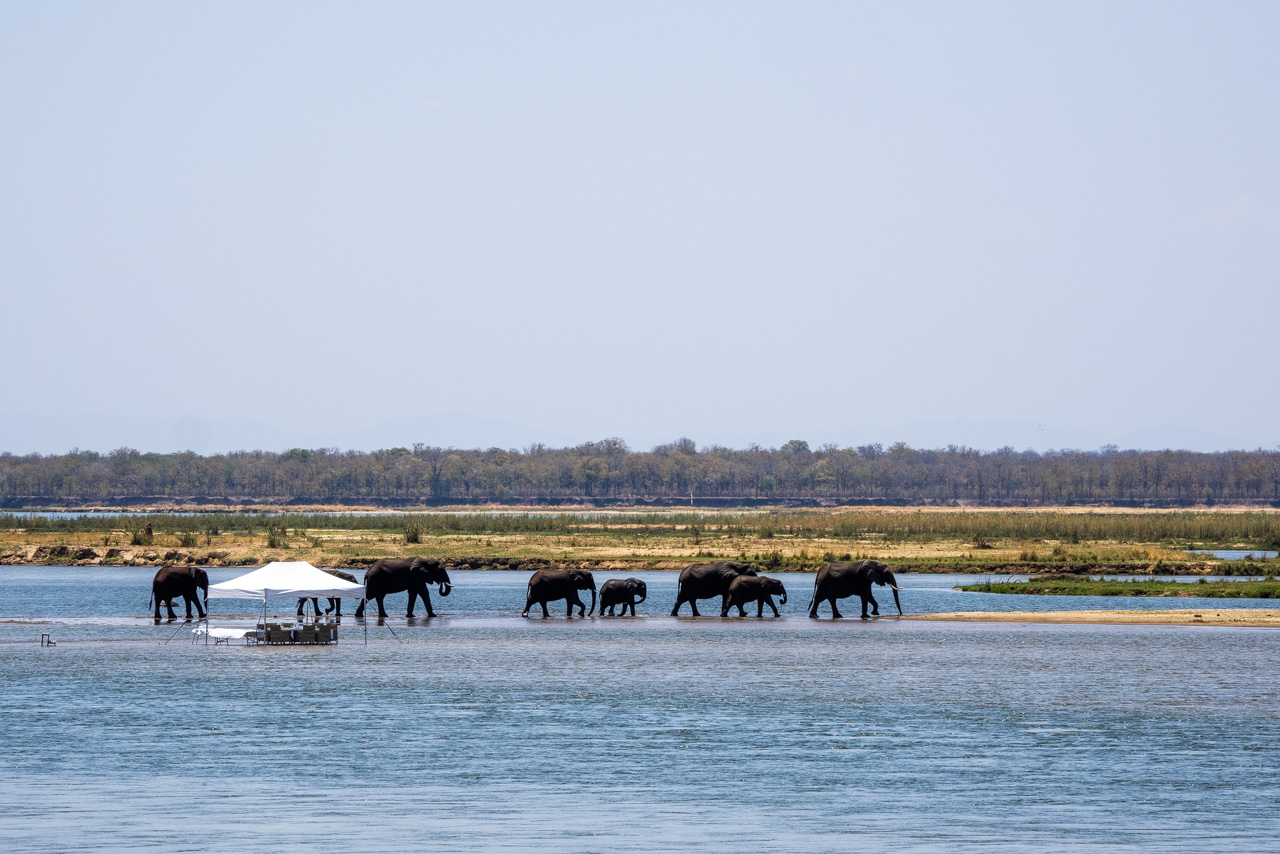
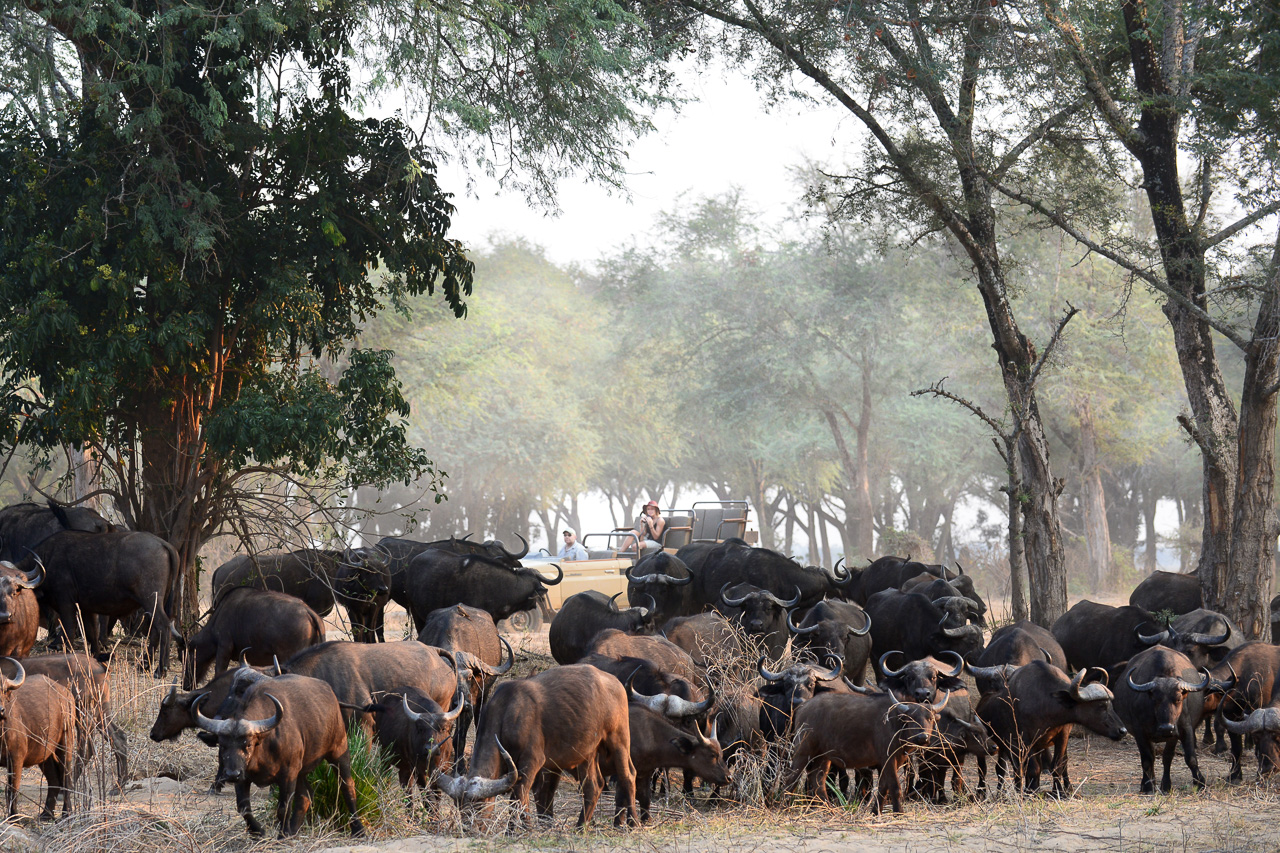
Accommodation
Upon arrival, Sausage Tree Camp impresses with its elegance and attentive staff. Seven modern and very spacious suites and one family suite (Kigelia House) are situated in a prime location on the banks of the Zambezi and offer a fabulously beautiful view. Each suite has its own lounge area, a very large bathroom with indoor and outdoor shower, as well as a bathtub and an equally spacious terrace with private plunge pool where you can cool off and watch the hippos, crocodiles and elephants. Each suite is assigned a personal butler to ensure that the guests have everything they need.
In the middle lies the main building, where bar, dining area and the jetty are located. From the high deck the view of the green islands of the Zambezi and the Escarpment in the background is particularly idyllic. Breakfast is served at the bar in front of the deck. A 25 metre pool gives variety to safari life, where you can cool off and swim a few lengths.
Sausage Tree is one of the most luxurious safari camps in Lower Zambezi, offering guests any amenities without losing its original bush camp vibe. The individual, personal service is key; in addition to a personal butler each party has a private guide at their disposal. Sausage Tree Camp offers personalized safaris allowing the guests to set pace of their day including the type and length of each activity.
The region around the camp is highly diverse and contains several beautiful channels and lagoons.
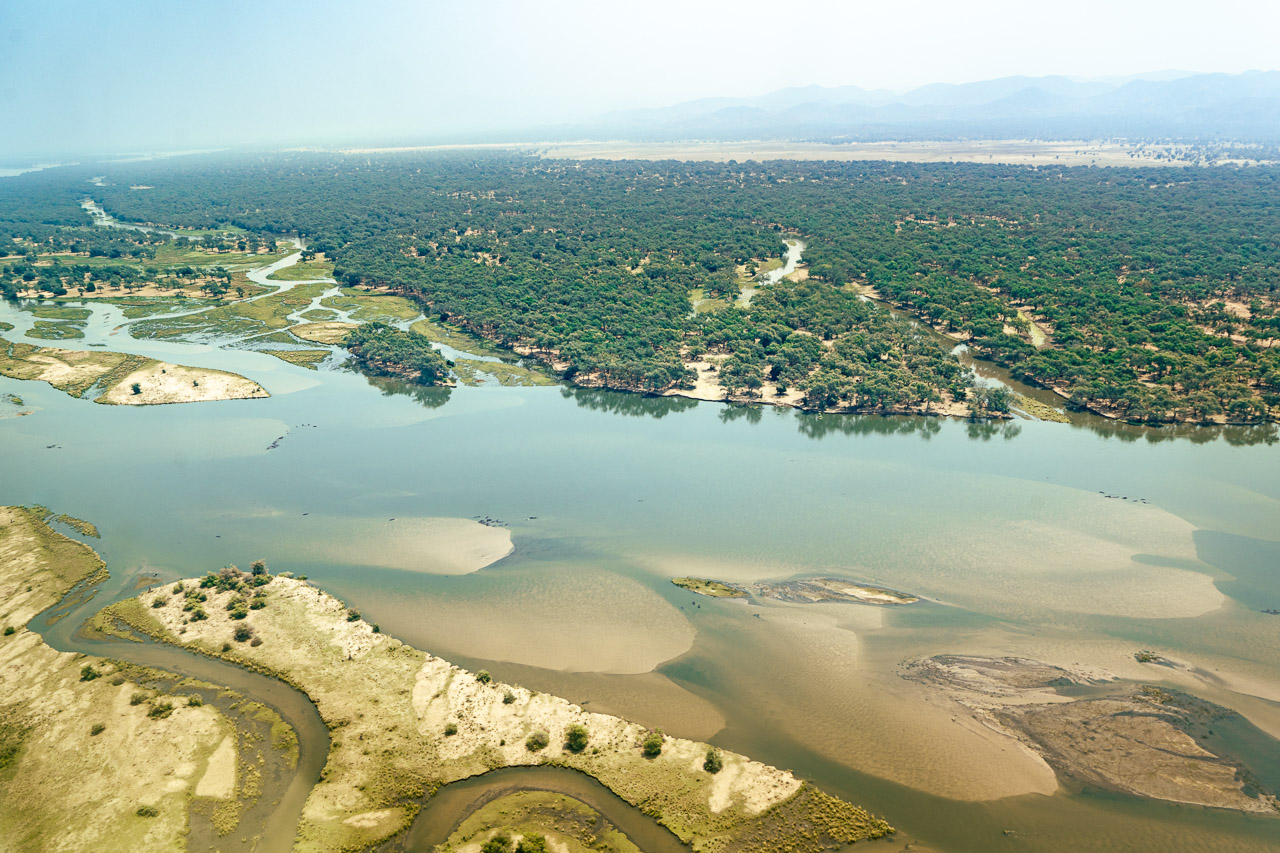
The camps are all located on the riverside, which pulls in large herds of elephant and buffalo. The best camps offer canoeing safaris on the Zambezi’s tributaries or trips on the Zambezi River in flat-bottomed boats. In addition to game drives, walking safaris are also usually on offer – there is something different to do here every day.
An abundance of elephant gathers in the Lower Zambezi region, and the pachyderms are permanent visitors to the camps, so keep your eyes peeled when walking back to your room.
It gets very hot and sultry in October, just before the wet season begins. If you keen on walking and suffer from the heat, please visit earlier in the season.
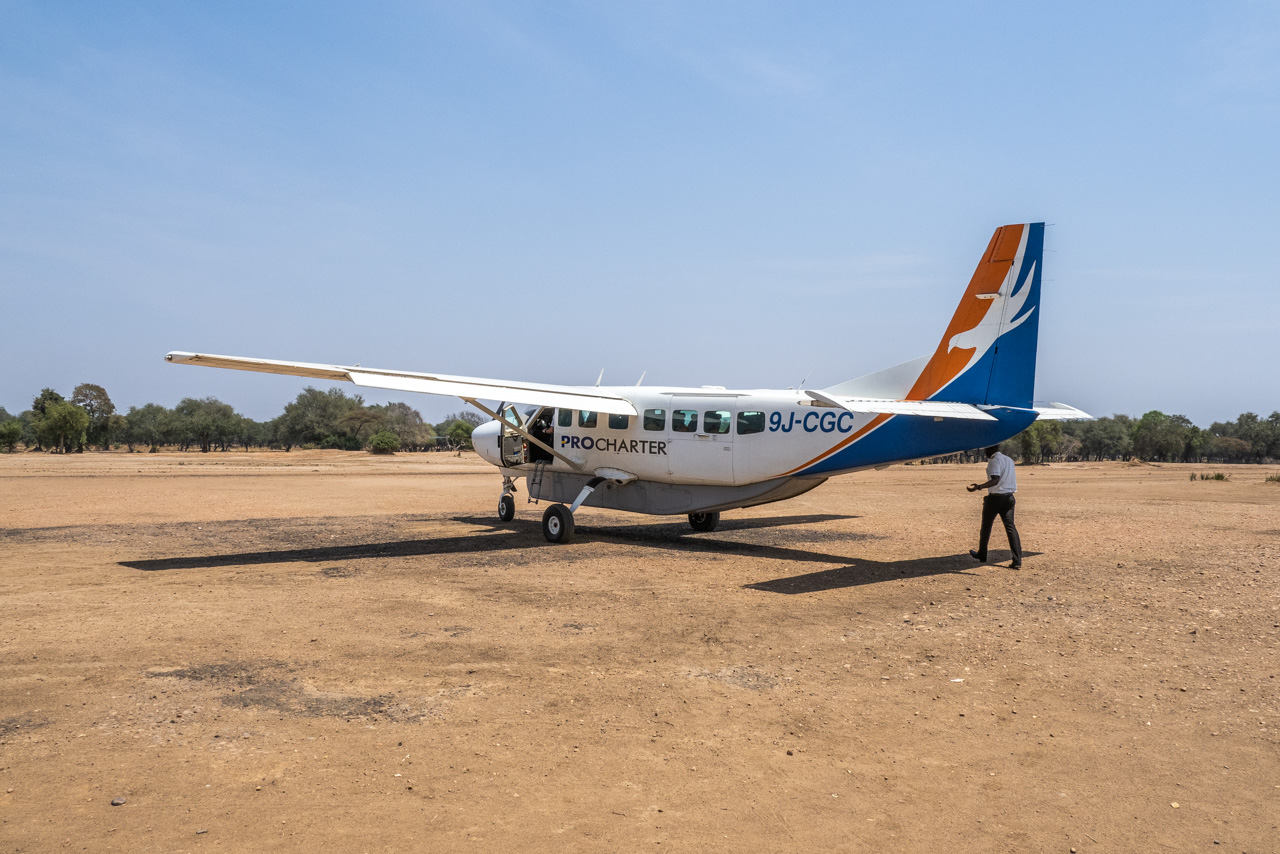
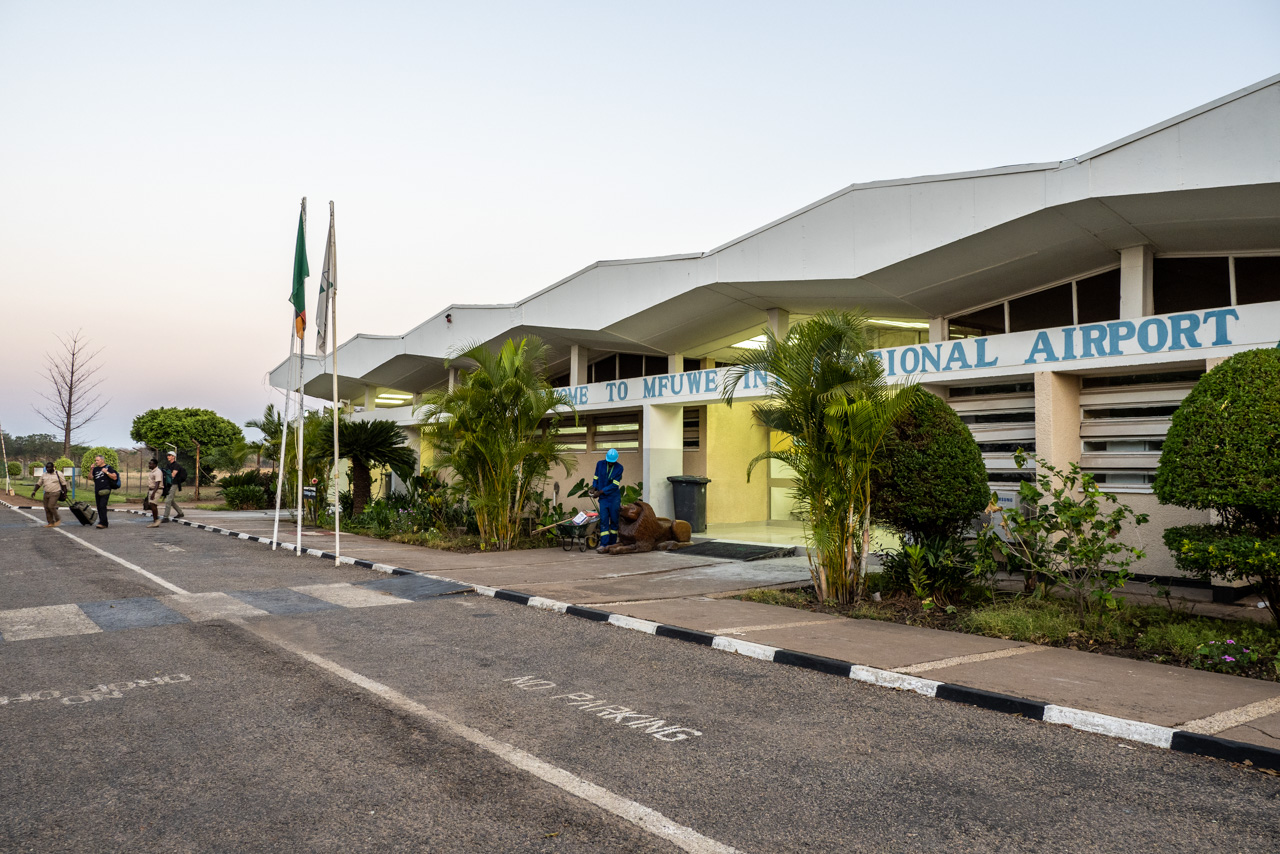

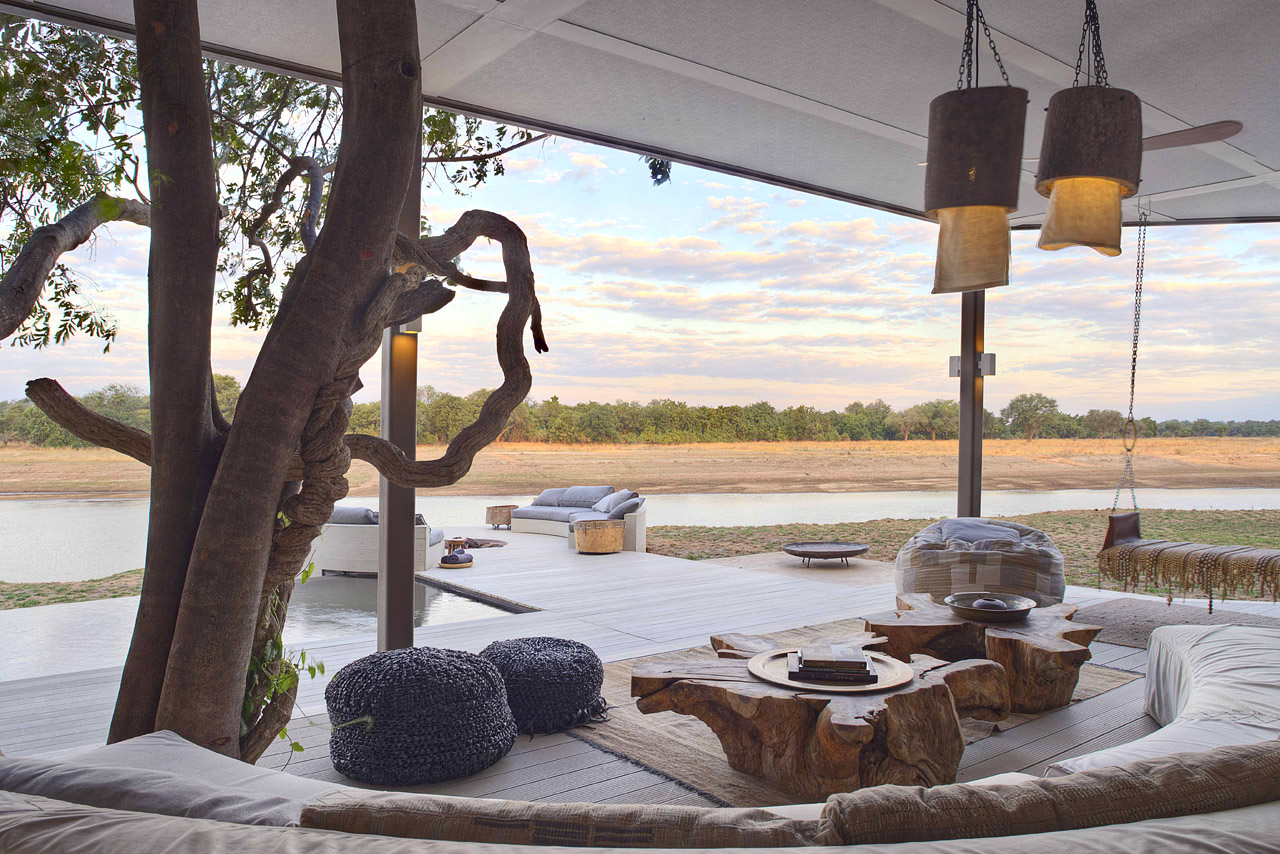
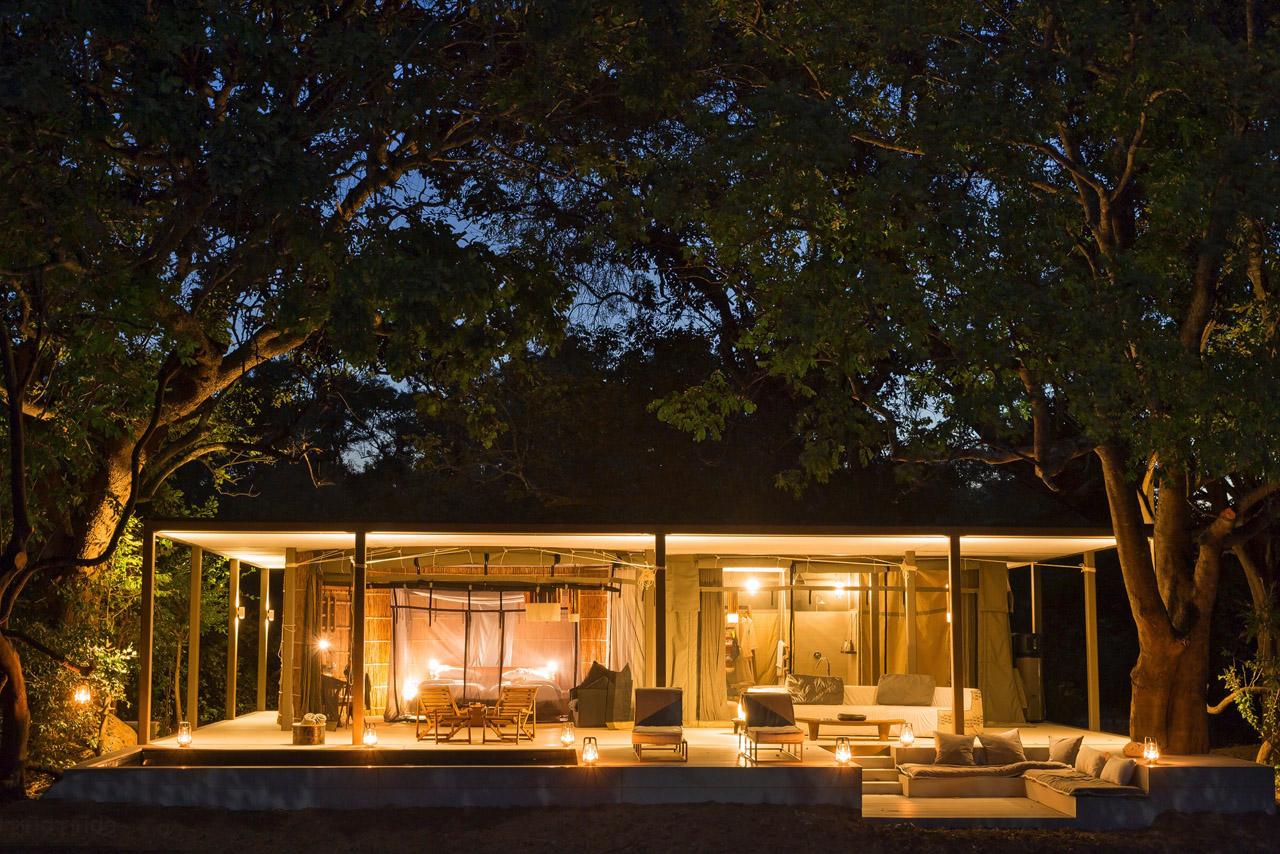
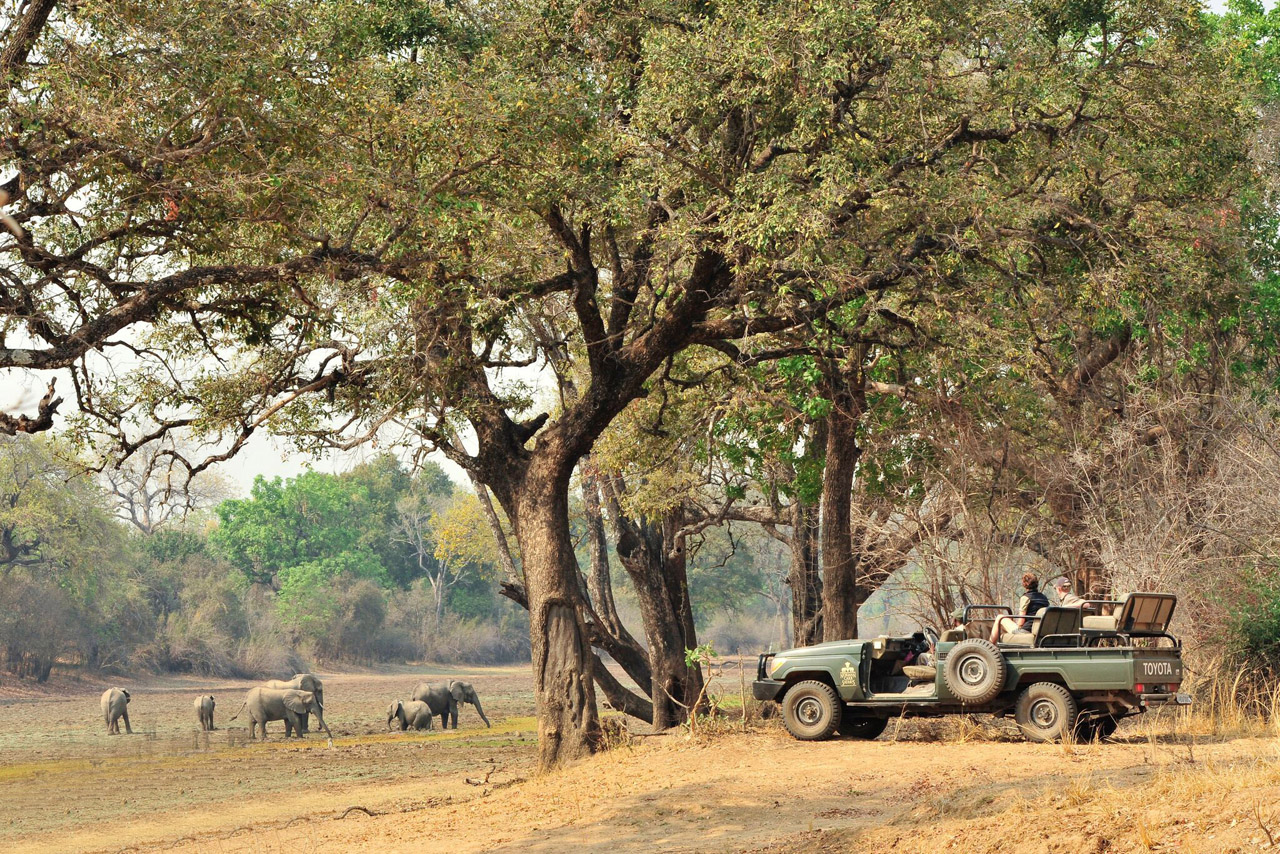
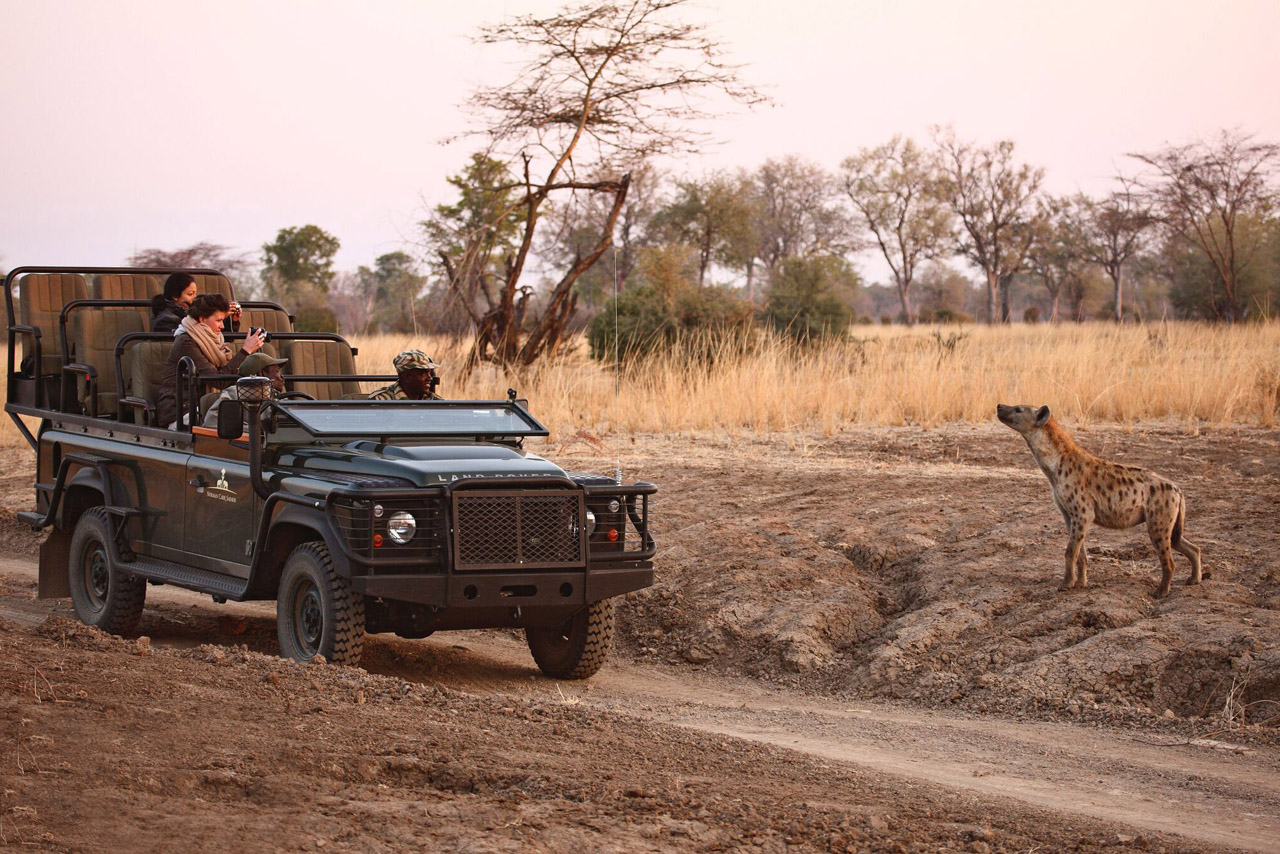
Accommodation
Chinzombo Camp brings levels of comfort, style and elegance previously unseen to the Luangwa Valley. Six spacious villas (150m2) – one of which is designed to accommodate a family of at least five are nestled within the shade of ancient trees in a wildlife rich area along the Luangwa River. Each villa has its own plunge pool and a large, bright terrace with a very comfy lounge. At Chionzombo guests truly get spoiled.
The spacious main building is equally stylish and includes a lounge corner, swimming pool, curio shop, an outdoor fireplace, bar and dining area. Here, guests don't eat together at a long table like in the classic bush camps. Chinzombo is more reminiscent of the Botswana camps in style and was built by the same architects who built some of the most famous Wilderness camps, including North Island in the Seychelles.
Guests cross the river by boat or by vehicle (if water levels permit) to access the National Park without having to cross Mfuwe main bridge. However, both sides of the river are equal when it comes to the abundance of wildlife they offer. Elephants cross the river all the time and know no park boundaries. In the morning some local fishermen may fish on the Luangwa, which is allowed here.
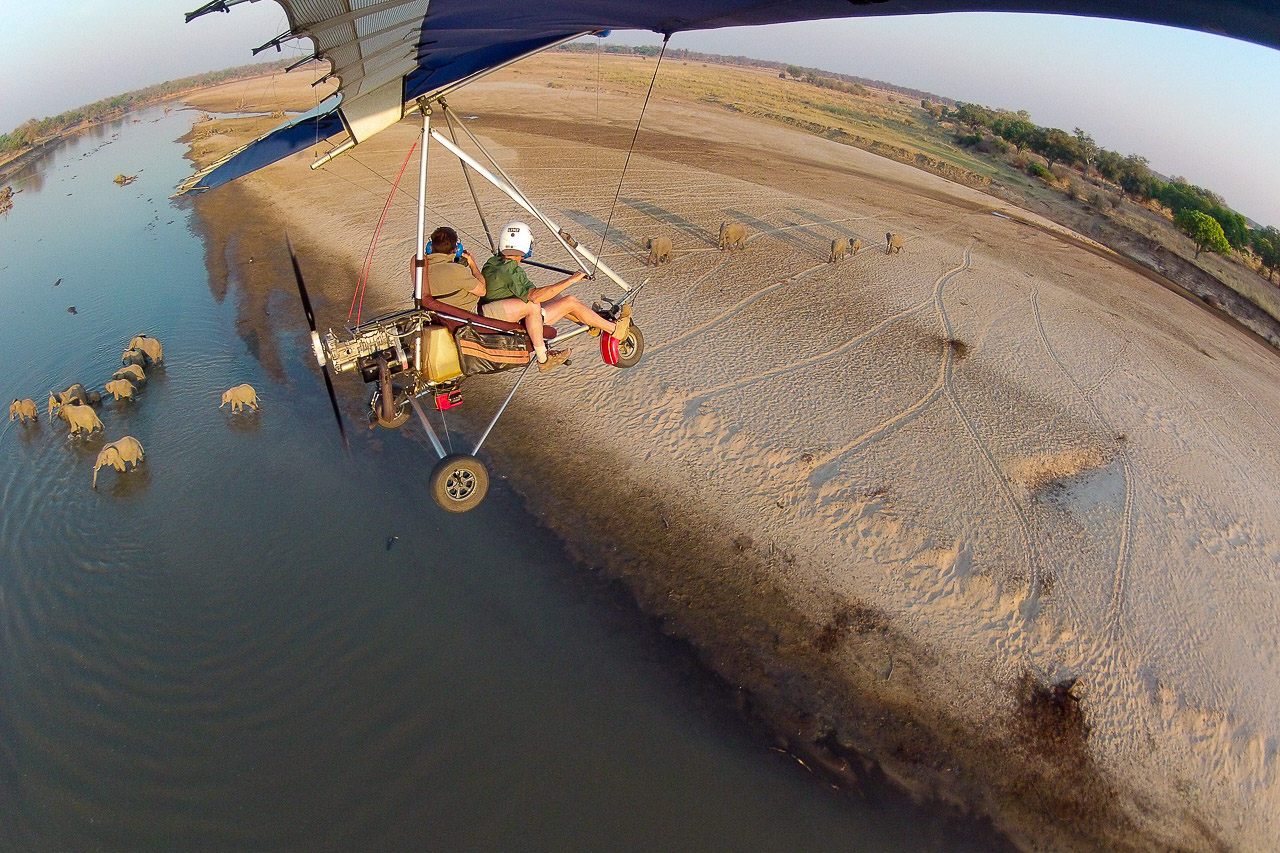
Most camps here are located close to the river, as this is where animals come to quench their thirst during the dry season. The dry season is also when the water level reaches its lowest point, exposing large sandbanks. The residual pools support high concentrations of crocodile and hippo, which tussle for the remaining water. When the wet season arrives in November, the water level rises rapidly, and the Luangwa becomes a raging torrent – it has even been known to take the odd camp with it.
The walking safari is South Luangwa’s speciality, and is available at every camp. At 500 m above sea level, the park is very hot during the summer months. If you’re not a fan of intense heat and don’t like walking safaris, then it’s best to visit earlier.
The Muchinga Escarpment, a natural boundary to the west, prevents the migration of animals. The park is bordered by the river to the east and extends into the Nsefu Sector, which stretches out from the other side of the river.
The park’s entrance gate is located at the town of Mfuwe, which has a small airport (this is where guests are picked up). Many of the less expensive camps are located outside the park, close to the main bridge. In our opinion, the central sector around Mfuwe Lodge suffers a bit from traffic coming in over the bridge. For this reason, we recommend that you avoid the main bridge and visit the southern sector, the northern sector or Nsefu sector to experience quieter safaris.

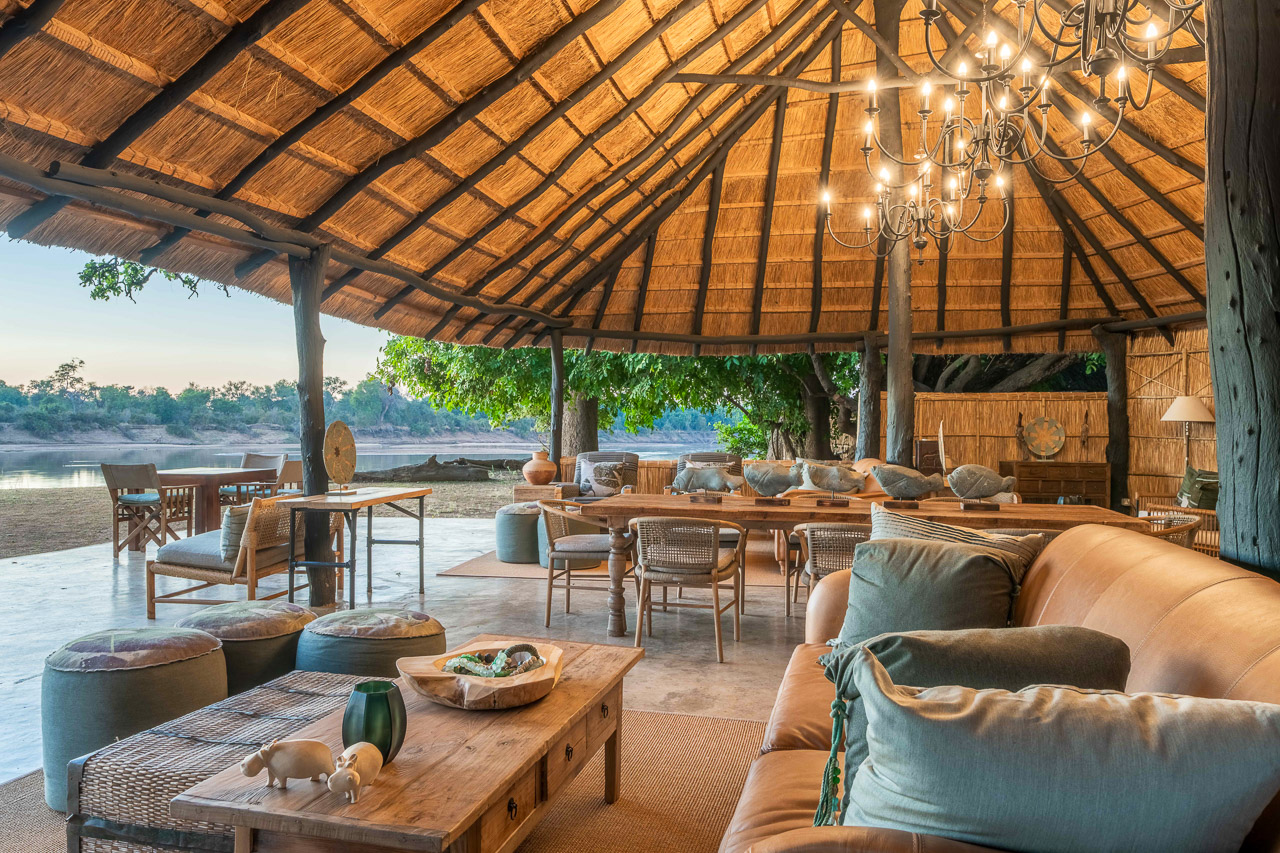
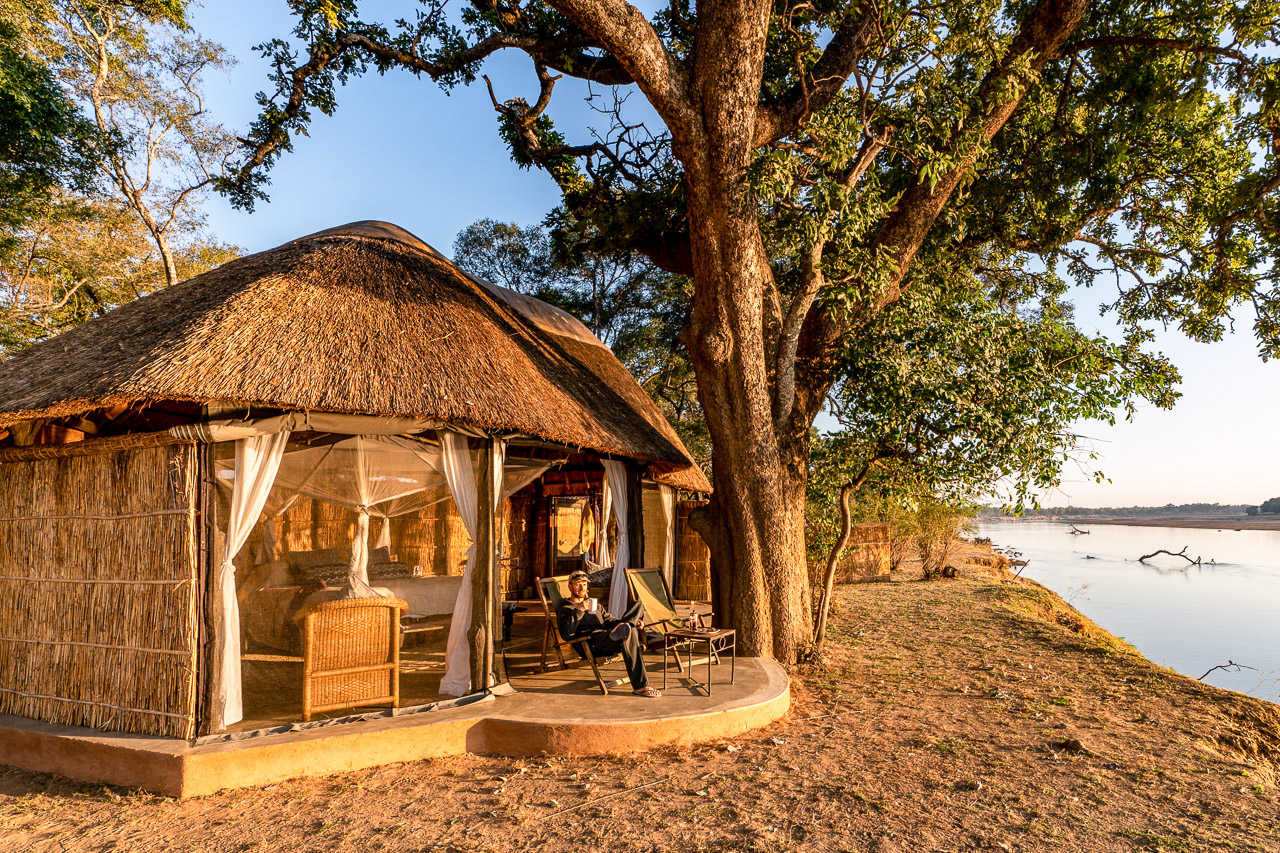

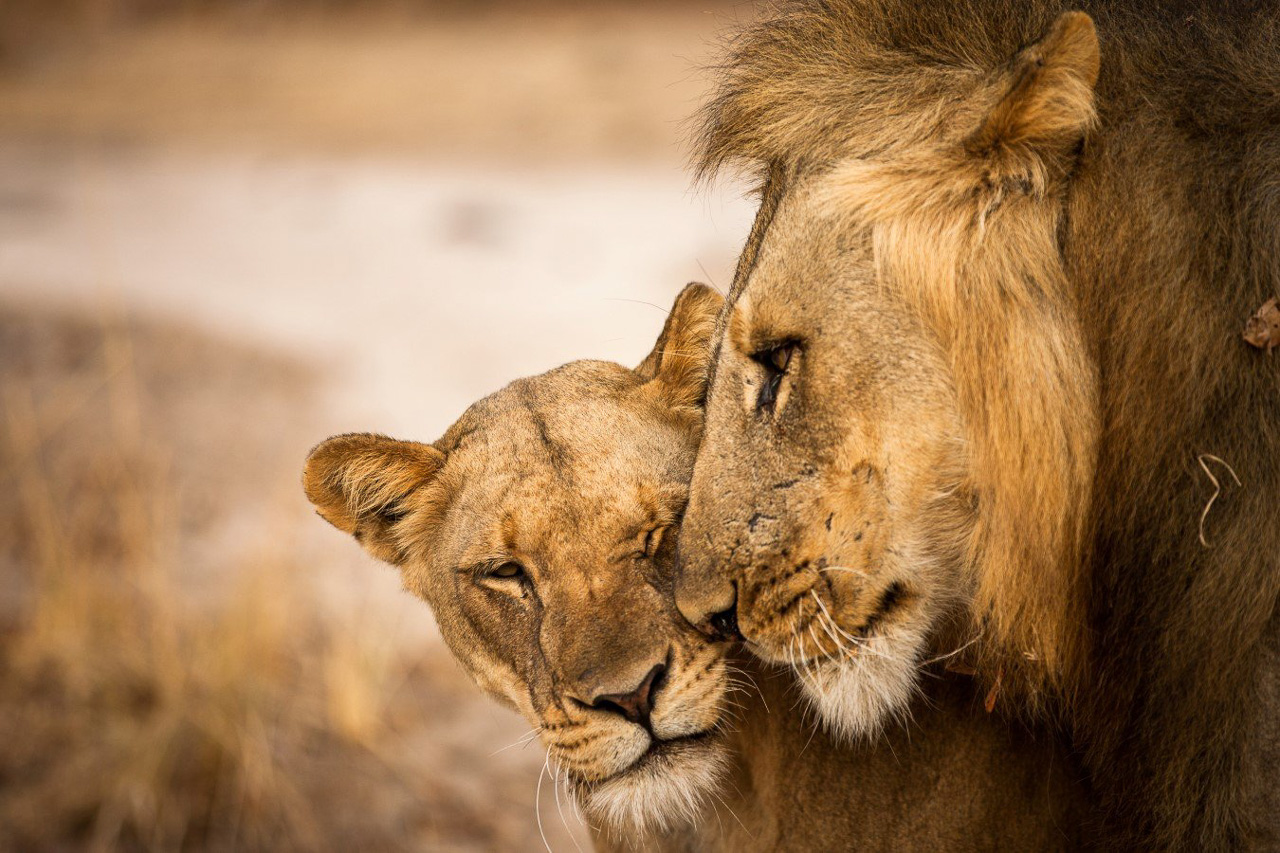
Accommodation
Mchenja Bush Camp is Norman Carr Safaris’ (current time + tide) most luxurious bush camp. „Mchenja" means ebony in the local language, matching the beautiful ebony forest which surrounds the camp.
Five wonderfully spacious, semicircular tents with characteristic thatched roofs and en-suite open-air bathrooms sit slightly elevated upon a rock floor. A canopy provides a sense of security, while the freestanding bathtub adds a touch of luxury – perfect after a multi-day walking safari. A wooden veranda allows guests to sit and watch the baboons at play as impala and bushbuck graze right in front of the tent. One of the rooms is a two bedroom/two bathroom family suite which is the perfect retreat for friends and families traveling together.
The main building comprises a bar, lounge area, dining table and a cosy and beautiful sitting area around the fireplace, where the day begins with breakfast in the morning and ends with a drink in the evening. Meals are often served under the open sky on the riverbank. At the far end of the camp there is a well maintained pool just be ready to share with the thirsty elephants!
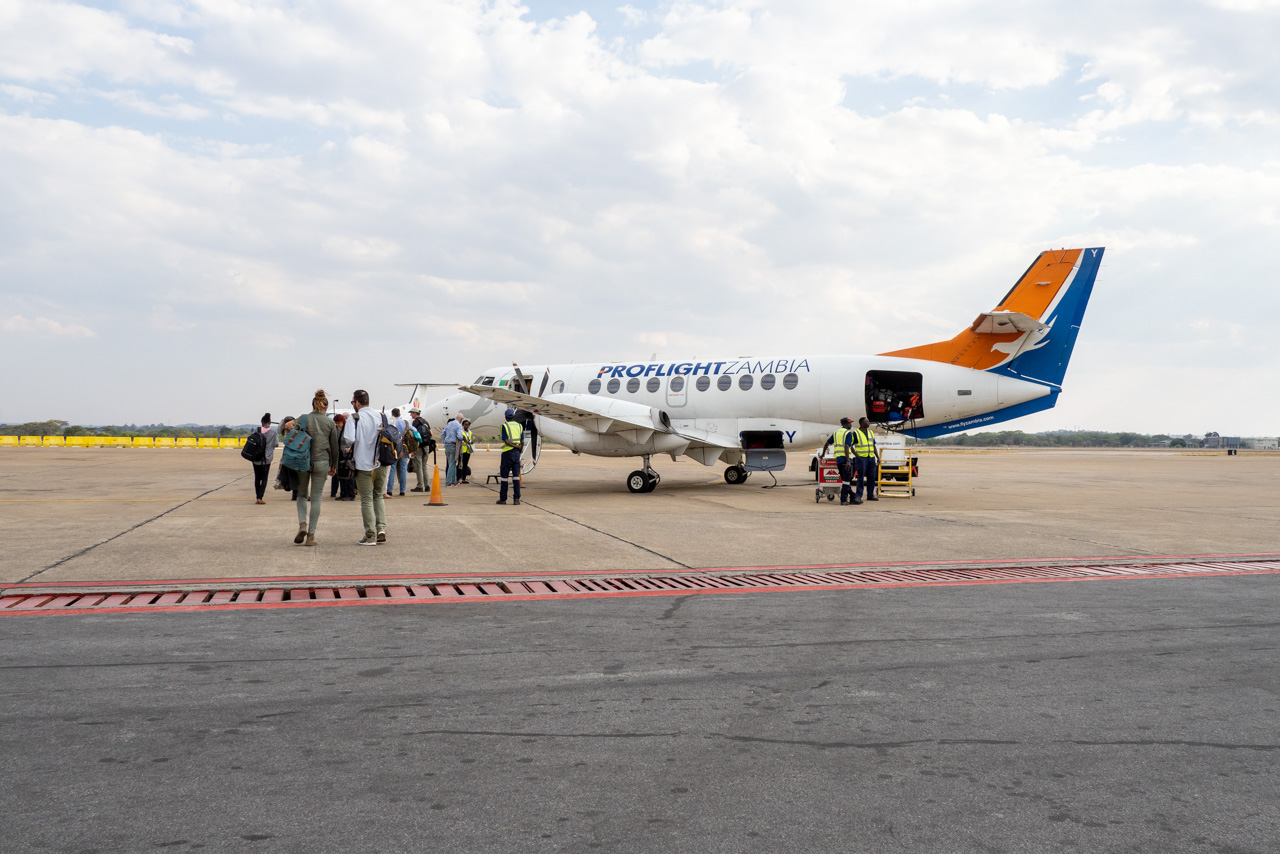
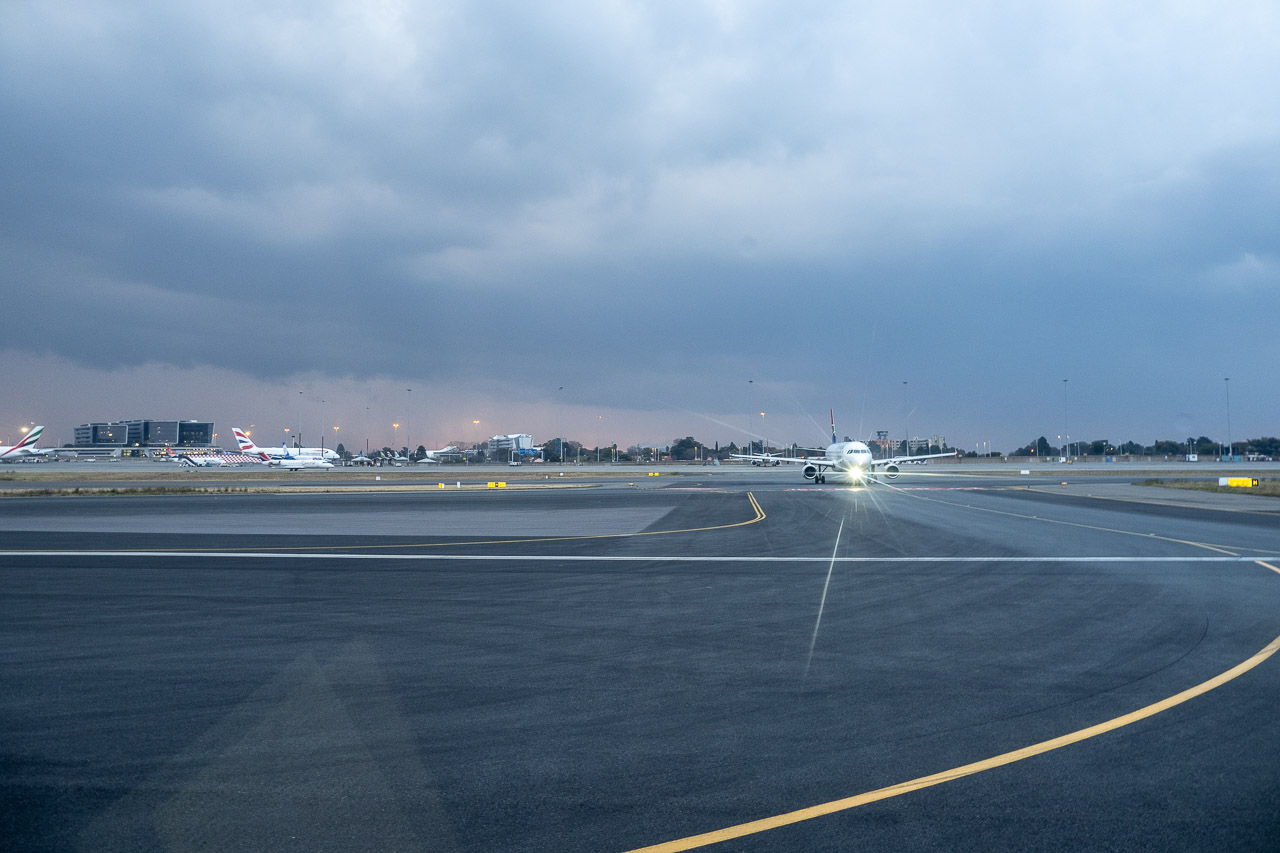
Basic Information
Individual journey. The journey will be planned on your preferred dates.
Duration 12 nights. Min 2 guests. Minimum age 12 years. Weight limit of luggage 20 kg. Luggage in one soft bag only.
Includes all transfers from Livingstone to the hotels/camps to Lusaka
- Shumba Camp: Standard Room. All meals, drinks (except premier brands), laundry service, twice daily shared activities with one of the camp guides.
- Sausage Tree Camp: Standard Room. All meals, drinks (except premier brands), laundry service, twice daily shared activities with one of the camp guides.
- Chinzombo Camp: Standard Room. All meals, drinks (except premier brands), laundry service, twice daily shared activities with one of the camp guides.
- Mchenja Bush Camp: Standard Room. All meals, drinks (except premier brands), laundry service, twice daily shared activities with one of the camp guides.
Learn more about these areas










